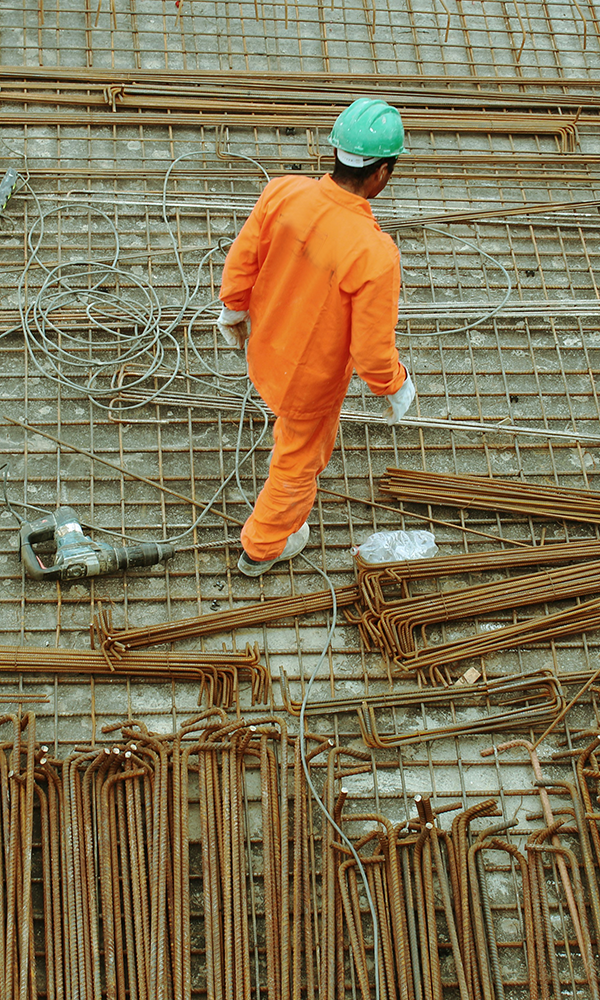Buildings are at the core of our lives. Yet, creating and maintaining buildings takes a huge toll on our limited natural resources. In the EU, the production of building materials emits 250 million tonnes of CO2 annually – equivalent to flying around the world 38 million times. It takes another 950 million tonnes to provide lighting, cooking, heating, and cooling. Our aim is to make a sustainable built environment a reality. We develop international standards and push for legislation that ensures circular, low-carbon building materials and creates buildings that fit planetary boundaries.



Research shows that by 2050, Africa's population will increase by about 60%. Two-thirds of the infrastructure and buildings required are yet to be built, ushering in an unprecedented wave of construction—and potentially, pollution.
ECOS is looking for experts to help us secure an ambitious and effective decarbonisation pathway for cement and concrete value chains in Ghana, Kenya, and South Africa.
Europe is facing a double challenge: reaching energy, climate, and circularity goals while also ensuring affordable, accessible, and healthy housing. Too often, these two challenges are put against one another. However, for a built environment that works for people and nature, the upcoming European Affordable Housing Plan (EAHP) should take advantage of how environmental and social aspects can work together. With fellow experts from Natuur & Milieu and Lund University, we look at how tackling inefficient use of empty or underused buildings can ensure affordable housing and reduce environmental impacts.
Buy Better to Build Better (BBBB) - a coalition of industry, civil society, and public authorities - say that the quotas in the Industrial Accelerator Act are disconnected from what is feasible and needed to create strong lead markets for concrete and steel in Europe.
Download the pdf


ECOS is co-funded by the European Commission and EFTA

 Funded by the European Union. Views and opinions expressed are however those of the author(s) only and do not necessarily reflect those of the European Union or EISMEA. Neither the European Union nor the granting authority can be held responsible for them.
Funded by the European Union. Views and opinions expressed are however those of the author(s) only and do not necessarily reflect those of the European Union or EISMEA. Neither the European Union nor the granting authority can be held responsible for them.
